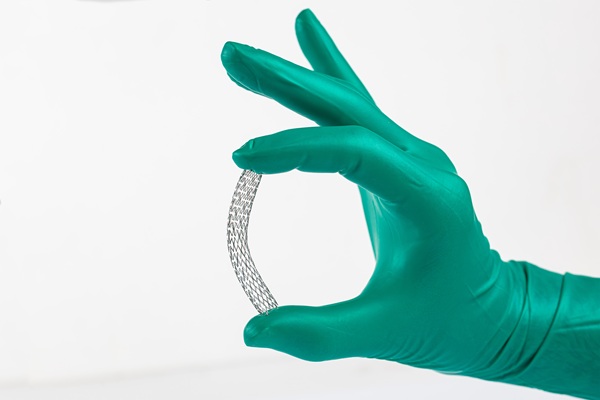Heart Specialists: When To See One and What To Expect

The heart is a hardworking organ that beats hundreds of thousands of times a day. A heart specialist, also known as a cardiologist, is trained to diagnose and treat conditions related to the heart and its blood vessels. Individuals may need to visit a heart specialist if they experience symptoms of heart disease like chest pain and shortness of breath or if they are at higher risk of developing cardiovascular issues.
When to consider visiting a heart specialist
It is important to recognize symptoms that may indicate a heart issue. Heart-related symptoms can be subtle or mimic other conditions. This makes it essential to seek medical advice if any of the following issues occur:
- Persistent chest pain or discomfort: Chest pain, particularly if it is frequent or severe, should not be ignored. While not all chest pain is heart issue-related, it is one of the most common symptoms that causes patients to consult a cardiologist.
- Shortness of breath or fatigue: Breathlessness or fatigue during daily activities may suggest a heart problem. A heart specialist can determine if these symptoms are cardiovascular-related.
- High blood pressure or high cholesterol: These are significant risk factors for heart disease. A heart specialist can help patients manage these conditions and suggest lifestyle adjustments or medication when necessary.
- Family history of heart disease: Those with a family history of heart disease may benefit from regular check-ups with a heart specialist. Cardiologists can help monitor their risk factors and provide preventive care.
- Irregular heartbeat: Palpitations, fluttering, or irregular heartbeats, known as arrhythmias, may indicate issues with one's heart rhythm. A cardiologist can evaluate these symptoms and determine if treatment is necessary.
What to expect during an appointment with a heart specialist
For some patients, it can feel overwhelming to visit a heart specialist. However, understanding the typical process can alleviate some of the uncertainty. A cardiologist typically begins by asking the patient about their symptoms, personal and family medical history, lifestyle habits, and other relevant details.
Physical examination and testing
The cardiologist may perform a basic physical examination, checking blood pressure and heart rate to listen to the sound of the patient's heart. Based on their initial assessment, the heart specialist may recommend further diagnostic tests. Common tests include:
- Electrocardiogram (ECG): An ECG records the heart's electrical activity and can identify irregular heart rhythms and other abnormalities.
- Echocardiogram: This ultrasound helps visualize the heart's structure and function, allowing the doctor to assess the heart's blood flow, valves, and muscle health.
- Stress test: During this test, the patient will perform exercise or take medication that simulates exercise. This test allows the heart specialist to observe how the heart responds to physical stress.
- Blood testing: The cardiologist often orders blood work to check the patient's cholesterol levels, lipids, and other markers related to heart health.
Explore treatment options
After the examination and diagnostic testing, the cardiologist will discuss findings and potential treatment plans. Treatments may range from lifestyle changes and medications to more intensive interventions like surgery if necessary. In some cases, follow-up visits or referrals to other cardiovascular specialists may be recommended for a comprehensive approach to heart care.
Call our office to schedule an appointment
Getting the right guidance from a heart specialist can make a substantial difference in your overall quality of life. Do you have questions for our team? Call our Boynton Beach office to learn more about our services or to schedule an appointment.
Request an appointment here: https://boyntonbeach.floridapremiercardio.com or call Florida Premier Cardiology at (561) 229-1411 for an appointment in our Boynton Beach office.
Check out what others are saying about our services on Yelp: Heart Specialist in Boynton Beach, FL.
Recent Posts
Coronary stent placement is a treatment for coronary artery disease, a buildup of plaque (fat and cholesterol) around the heart's arteries. Along with angioplasty, a stent helps restore blood flow to the heart, relieving symptoms such as chest pain and shortness of breath and helping prevent a heart attack. The following overview of coronary stent…
Heart disease treatment encompasses a range of interventions, from lifestyle changes and medications to surgical interventions. Individuals can manage their condition and improve their quality of life by working with a cardiologist. Successful heart disease treatment starts with the patient having the information they need to make informed decisions about their health.Also known as cardiovascular…
A heart specialist is a doctor specializing in diagnosing and treating cardiovascular conditions. Patients may be referred to one of these doctors for several reasons, from diagnosing a heart health issue to getting cleared for surgery. However, seeing a heart specialist is even more crucial for those either experiencing the signs of heart disease or…
Cardiologists perform angioplasty to open blocked arteries, specifically those caused by coronary disease. This minimally invasive alternative to open heart surgery can restore proper blood flow to the heart and often reverse the fast track to a heart attack. However, learning when one is necessary is crucial for treatment success.Coronary artery disease (CAD) is a…


